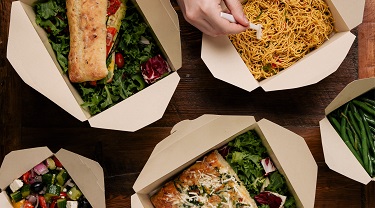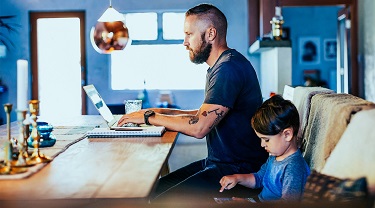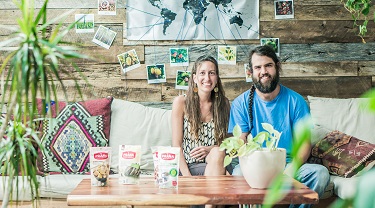
PRANA Biovegan: Changing the world with healthy snacks
Marie-Josée Richer and Alon Farber are leading a charge to drive positive change through organic-certified food. They call it their “snacktivism movement.”
The couple are co-founders of PRANA Biovegan, a Montreal-based company that makes plant-based snacks, including organic trail mix, dried fruits, roasted nuts and hemp and chia seeds. Strong advocates for healthy eating, they say food does more than sustain us. “Food brings people together. There’s a social aspect to it. It nourishes our hearts and souls,” says Richer.
Creating wholesome, gluten-free, non-genetically modified (non-GMO) snacks in the most sustainable, environmentally friendly way is what drives the “PRANA family” of nearly 100 employees, she says.
Several initiatives, including planting trees, smart sourcing supplies and significantly decreasing water consumption and waste in their factory, are part of the company’s ongoing efforts to reduce their impact on the environment.
“We believe in a socially responsible economy fuelled by companies with strong cultures and we want to use business as a driver for positive change,” Farber explains.
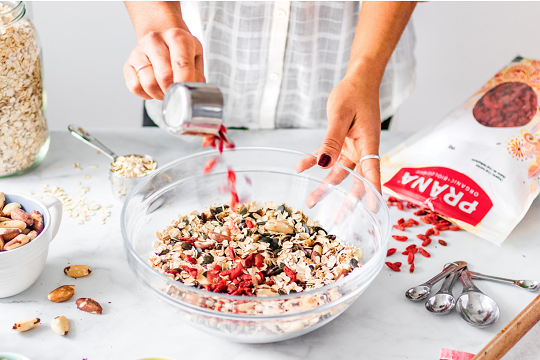
The backstory
Prana is a Sanskrit word meaning vital energy, says Richer, a mother of three who met her future husband about 20 years ago while travelling through India. Both vegan, they shared a love of healthy eating and supporting local growers, and soon opened a small village restaurant offering dishes made from seasonal vegetables.
“Back then, being vegan was like being an alien,” quips Richer, whose plan was to eventually integrate a health centre, offering yoga and meditation, into their restaurant.
But in 2005, they decided to come back to Canada and start an organic food business in Quebec. With $10,000 in savings, they began selling roasted nuts and small, ready-to-eat meals through word-of-mouth and local farmers’ markets.
“At the time, organic-certified products were relatively unpopular and hard to find,” recalls Farber. “But we recognized the importance of eating healthy while respecting the natural cycles of the earth and the ecosystems.”
That’s when the “snacktivism movement” was born.
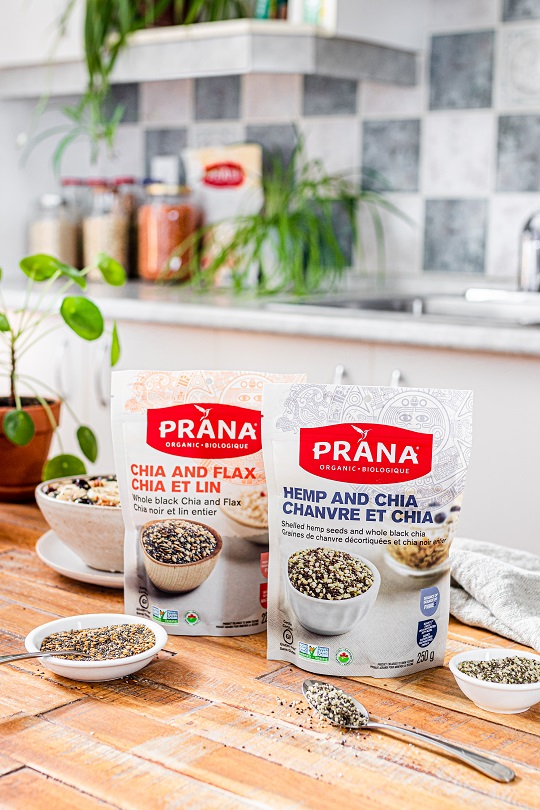
Defined on their website as a collective effort “to create a more sustainable food system,” snacktivism is “based on the idea that the small actions of many can make a big difference.”
Now exporting to the United States, United Kingdom, Spain and France with plans to expand into China and Mexico, the visionary entrepreneurs say their goal is “set on changing the world by fixing the food system. We want to empower people to become snacktivists and to take a stand for real food. It’s a movement towards a better, healthier world.”
In 2015, PRANA was granted B Corps certification, which recognizes businesses from all industries that have a positive impact on the environment, as well as their customers, employees and community. The company is now part of a global community of more than 2,000 companies in 60 countries and 130 industries.
Getting the official recognition as a company with “integrity, transparency and social and environmental responsibility” has been both validating and inspiring, Richer says.
“At our core is to have a positive impact. These are our values,” she explains. “We’re a purpose-driven company. We make our food with intention.”
You should also check out
Challenges of COVID-19
When government-ordered lockdowns and port and factory closures were implemented in March to thwart the spread of the coronavirus, PRANA sales tanked.
“Consumers reacted in fear and went into survival mode,” says Richer of the throngs of shoppers who rushed to stores to stock up on toilet paper, antibacterial soap and kitchen pantry staples. PRANA’s organic snack foods weren’t high on customers’ grocery lists. “It was a huge hit for us in the first few weeks then the situation stabilized.”
Like many businesses around the world, PRANA “had to adjust quickly,” she says.
“Consumers started spending differently. There was a big shift to more online shopping. We had to figure out how can we cater to those customers?”
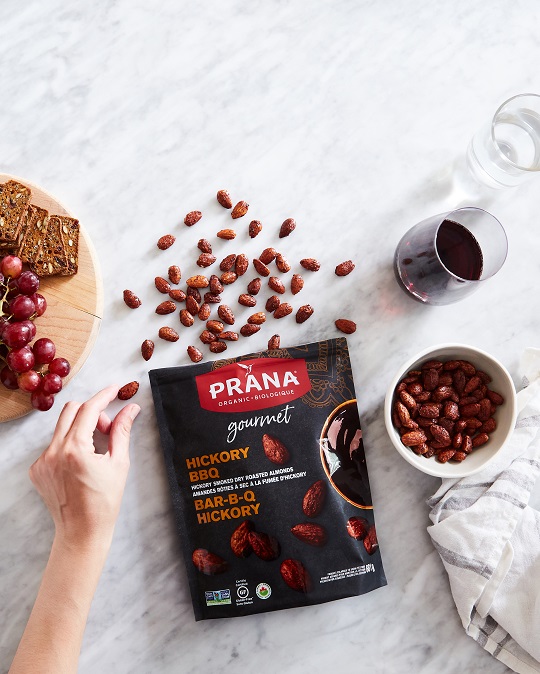
There were also internal challenges. “We had to adapt to our new working conditions and find ways to keep engaging our employees” while growing their business and expanding their social and environmental projects. “It’s definitely challenging,” Richer says.
How EDC helped
In April 2020, Export Development Canada launched the Investment Matching Program to help Canadian companies with their commercial growth plans and working capital needs to overcome the pandemic’s unprecedented economic challenges.
Under the program, EDC matches up to $5 million of new investment put forward by private sector institutional venture capital, private equity and corporate investment partners.
“During COVID’s challenging times, EDC’s Investment Matching Program helped PRANA remain focused on its long-term plan by strengthening its cash flow and balance sheet,” says Richer. “We were able to keep our head clear and continue to innovate and focus long term.”
You should also check out
Challenges as a woman in trade
“The world of trade is opening up more to women, but women are still not well-represented on corporate boards,” says Richer, who admits that in many cases, female entrepreneurs “still have to choose between career and family.”
Having three children in five years, Richer says building a small startup into a multimillion-dollar company wasn’t easy. Juggling long working hours with being “a present mother” was extremely challenging.
Her advice to other mompreneurs: “Build a superstar, confident team, so you can spend more time with your family.”
She also points out that it takes collaboration and strong teamwork to succeed. “A company doesn’t grow in its numbers; it grows in its people. In the togetherness, we can do so much.”














